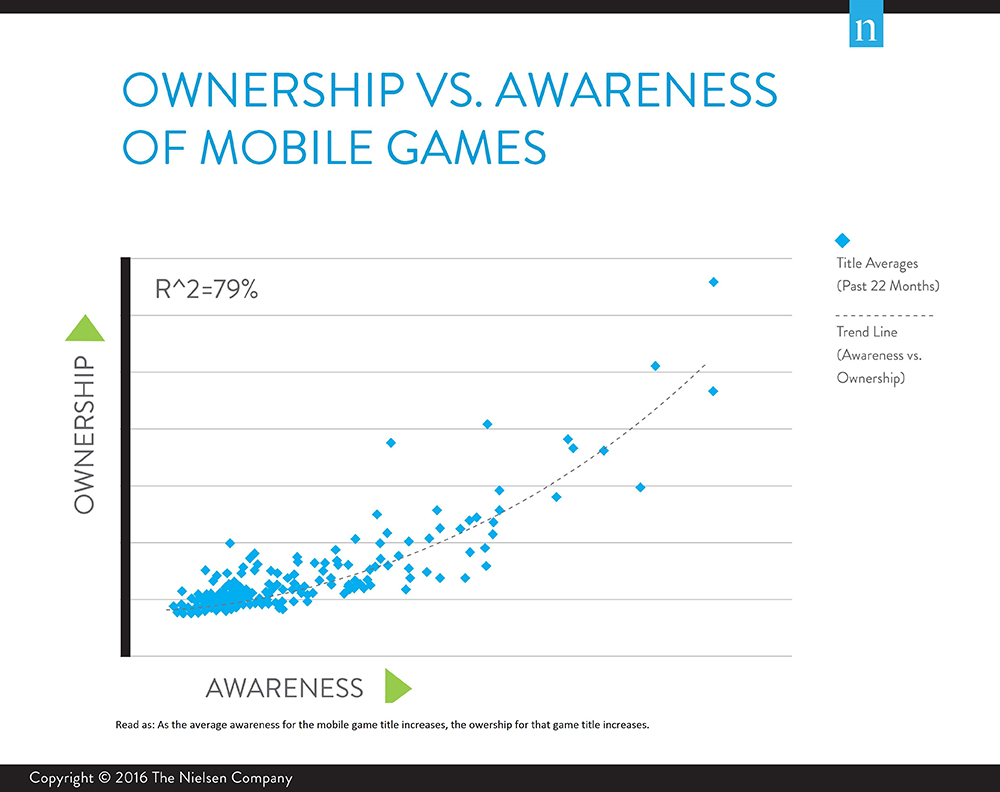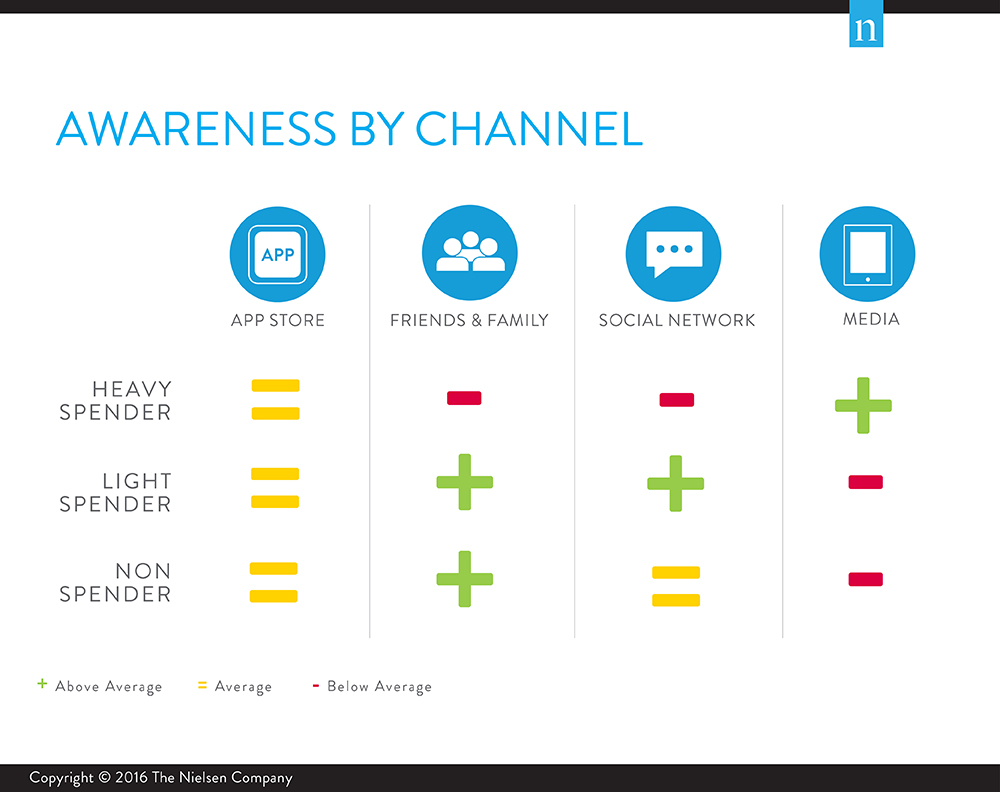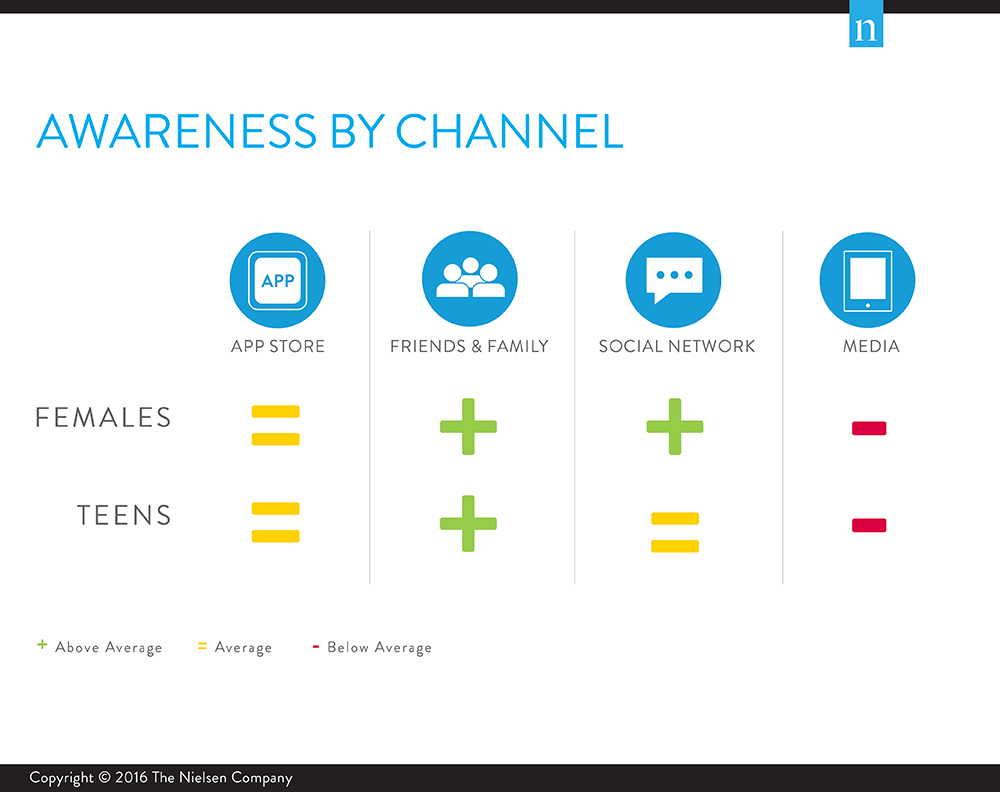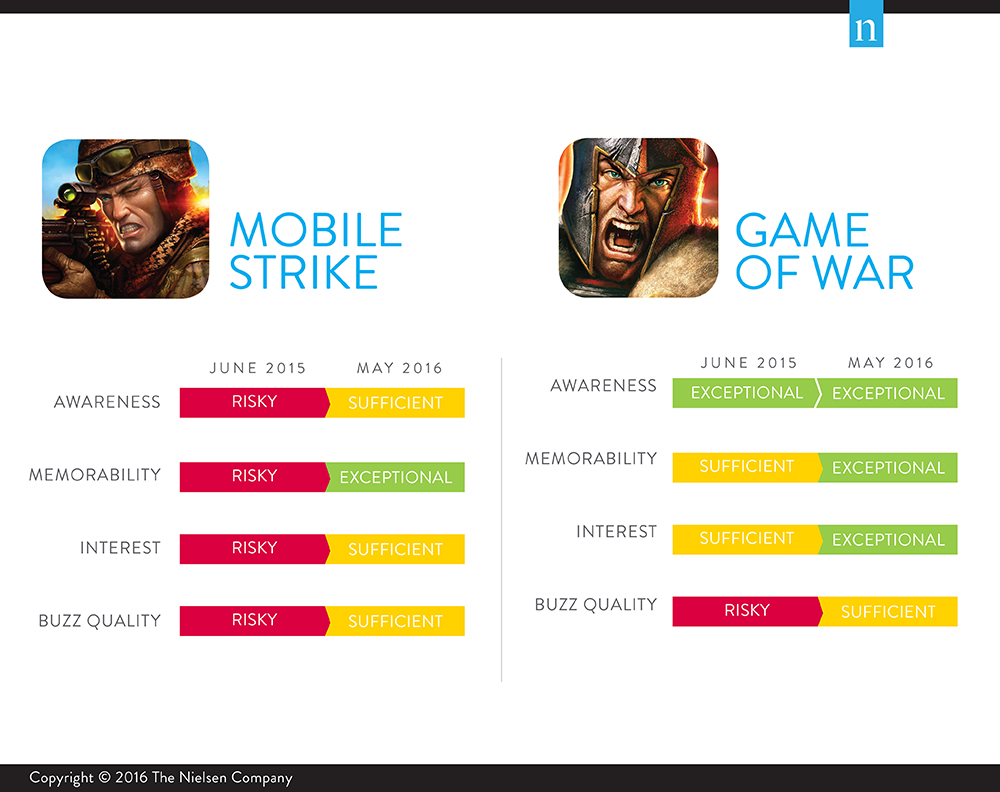In the over-saturated mobile games market, publishers are increasingly willing to pay to get their titles in front of eager players. Whether it be through app store promotions, traditional media or advertising on social media, these platforms are often the first place consumers become aware of new games. If mobile gamers aren’t aware of a game, they can’t consider it, download it or generate buzz around it. So in that regard, awareness becomes the baseline for success at every subsequent step toward a final purchase.
While awareness doesn’t guarantee success, it greatly increases a game’s potential for prosperity at every other stage. Mobile titles with higher awareness see exponentially higher ownership, so understanding how mobile gamers become aware of titles is fundamental in the highly competitive mobile games market.

Engagement heavily influences where mobile gamers get their information. For example, mobile gamers who are heavy spenders source their mobile information from different channels than light spenders. Heavy spenders, who also serve as trendsetters for the category, frequently visit sites where mobile games are discussed and advertised. Publishers looking to engage these gamers should establish a strong digital presence early in a title’s life cycle with targeted ads and PR.
On the flipside, causal, light-spending mobile gamers rely more on the recommendations of those close to them, especially further into a mobile title’s life cycle. At this point, media campaigns to attract casual gamers are less effective than in-game promotions that prompt gamers to recommend the title to a friend.

Publishers also need to be aware of which channels are most effective for their specific audiences. Notably, channel effectiveness is driven by the demographics of a publisher’s target audience. For example, women and teens tend to learn about mobile titles from people they know and have historically not been overly influenced by media.

Beyond target and channels, the use of spokespeople has been significantly effective over the past year. With Kate Upton and Arnold Schwarzenegger as their spokespeople, “Game of War” and “Mobile Strike,” respectively, have significantly improved their visibility, with consistent growth in awareness and large jumps in memorability. These celebrity-endorsed campaigns have successfully improved notoriety with substance, leading to significant improvements in download interest and buzz.

Generating awareness in the mobile games market is certainly not getting any easier, but its importance has never been greater. By maximizing reach at the awareness stage, publishers will exponentially increase the likelihood for success going forward.



